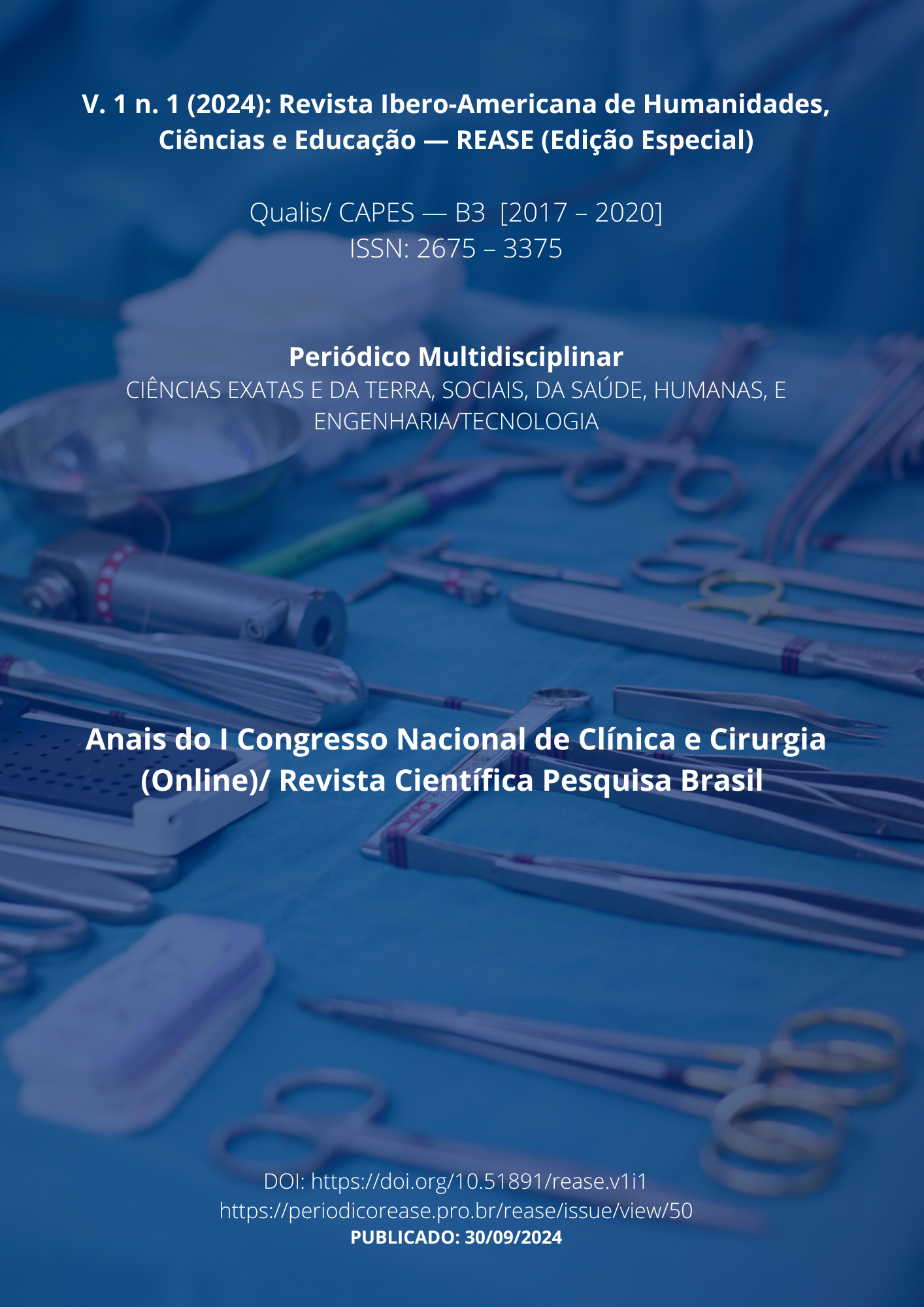INNOVATIVE APPROACHES TO REDUCING SEPSIS MORTALITY: AN INTEGRATIVE REVIEW
DOI:
https://doi.org/10.51891/rease.v1i01.15983Keywords:
Sepsis. Biomarkers. Immunomodulation.Abstract
Introduction: Sepsis is a dysregulated response of the body to an infection, leading to multiple organ failure and often death. Despite medical advances, sepsis remains a leading cause of mortality in intensive care units (ICUs) worldwide. In recent years, new therapeutic and diagnostic approaches have been proposed to reduce mortality from sepsis, including the use of biomarkers, immunomodulatory therapies, and early care strategies. Objective: This integrative review aims to analyze the most recent innovative approaches to reduce mortality from sepsis, focusing on therapeutic advances and early clinical interventions. Methodology: A systematic search was performed in the PubMed, Scopus, and Web of Science databases, considering studies published between 2015 and 2023. Clinical trials, systematic reviews, and cohort studies that analyzed new interventions to reduce mortality from sepsis were included. After screening, 29 studies addressing innovative therapies, including the use of biomarkers, immunomodulation, early resuscitation, and source control, were selected for analysis. Results and Discussion: The reviewed studies indicate the efficacy of early interventions, such as biomarker-guided resuscitation, in reducing mortality from sepsis. The use of biomarkers, such as procalcitonin and C-reactive protein, has been shown to be useful for early diagnosis and monitoring of sepsis severity, enabling faster and more accurate interventions. In addition, immunomodulation, including the use of cytokine inhibitors and immunoglobulin treatments, has shown promise in reducing the exacerbated inflammatory response. Therapies aimed at source control, such as the use of broad-spectrum antimicrobials and early surgical interventions, have also contributed to improved clinical outcomes. However, the variability in clinical trial results highlights the need for further studies to standardize these approaches and evaluate their long-term efficacy. Conclusion: Innovative approaches, such as the use of biomarkers for early diagnosis, immunomodulatory therapies, and early interventions, have the potential to significantly reduce mortality from sepsis. Although the results are promising, the heterogeneity of responses among patients indicates the need for individualization of treatments and further research to validate these interventions on a large scale.
Downloads
Downloads
Published
How to Cite
Issue
Section
License
Atribuição CC BY

